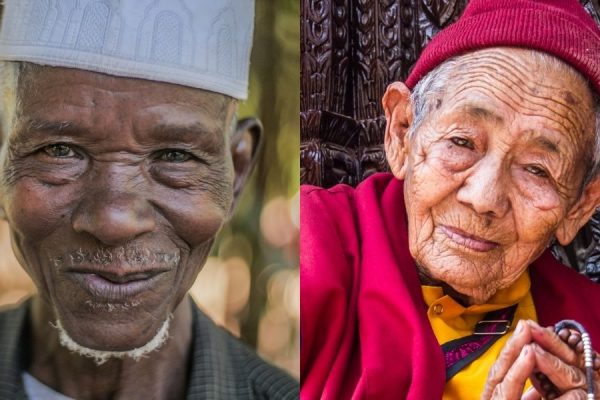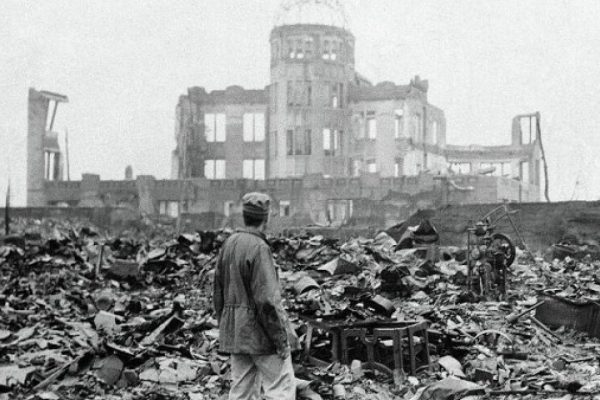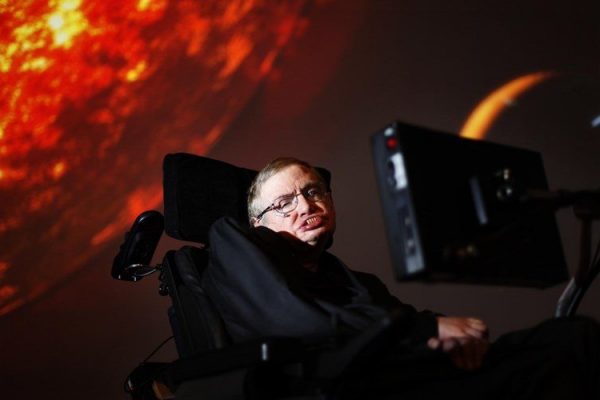No matter how one feels about religion, it’s undeniable that religious communities have spent generations building networks that operate behind the scenes to support those who are most vulnerable in our society.
No matter how one feels about religion, it’s undeniable that religious communities have spent generations building networks that operate behind the scenes to support those who are most vulnerable in our society.
One of the biggest stories in American religion in recent decades has been the rise of the “nones” — those who claim no religious identity. Some are atheists. Others agnostics. But most “nones” just don’t care much for organized religions.
They are “nothing in particular”, a category first tracked by Pew Research, and they make up about 1 in 5 Americans, according to the 2018 Cooperative Congressional Election Study, a survey with a sample size of 60,000 respondents in 2018 that is based at Harvard and has been conducted biannually since 2006.
These “nothing in particulars” might be the most consequential portion of America’s rapidly changing religious landscape, because they speak to a larger problem: the increasing number of rootless and detached members of American society, as evidenced by the steady decline in the number of Americans who volunteer themselves to serve in local civic activities like scouting or working charity events.
Americans who identify as “nothing in particulars” tend to have rates of social and political involvement that rank near the bottom of any religious group.
Those who are “nothing in particular” aren’t just cut off from organized religion. They have disconnected from many of the basic structures that hold us together as communities. If the trend continues, the United States may be headed for a very disjointed, disaffected, and self-alienated future.
First, it’s important to get a sense of how large this “nothing in particular” category is compared with other religious traditions. Protestants make up the largest share of the American population, with nearly 40% of Americans identifying as Baptist, Methodist, nondenominational, or any of dozens of other permutations of Protestant belief.
The second largest group is the “nothing in particulars” who respond to the religion question by saying: “none of the above.” They are followed closely behind by Catholics at 18%.
Then there is a significant drop-off until we reach the next groups. Eight percent of Americans are “other faiths” — Buddhists, Hindus, Muslims and other groups that individually make up less than 1% of the population. Then comes atheists and agnostics (both at 6%), followed by Jews (2%) and Mormons (1%).
Over the last decade, there is a clear and unmistakable trend: The group that has grown the largest in sheer numbers is “nothing in particular.”
Fully 1 in 20 Americans joined this group in the last 10 years. That’s the functional equivalent of every Southern Baptist in the United States becoming “nothing in particular.”
While other groups have seen some modest growth (atheists have gone from 3.4% in 2008 to 6% in 2018, and nondenominational Protestants added 1.6%), nothing comes close to the growth of “nothing in particular.”
The “nothing in particulars” have an average age of 43.8, which is similar to atheists (42.7) and agnostics (43.7), but is much younger than Protestants (51.7) and Catholics (49).
“Nothing in particulars” have a greater degree of gender balance (48.8% male) than atheists, who are 60.7% male, and agnostics, who are 56.1% male.
Only 70% of “nothing in particulars” are white, compared with 81% of agnostics and 83.5% of atheists who are white.
Education is one area that separates significantly the “nothing in particular” group from other religious categories. Among 10 of the largest religious groups surveyed by the team at Harvard, the “nothing in particular” group has the lowest average level of education, by a tremendous margin.
While about one-quarter of “nothing in particulars” have at least a four-year college degree (27.1%), their level of educational attainment pales in comparison with the rest of the nones. For instance, 47.5% of agnostics and 51.5% of atheists have a bachelor’s degree or more.
The 2016 Cooperative Congressional Election Study asked respondents if they had engaged in one of five activities: attended a local political meeting, put up a political yard sign, donated money to a candidate/campaign, volunteered for a political campaign or given blood.
The group least likely to check any of those boxes was the “nothing in particulars.” According to the CCES 2018, nearly two-thirds of the “nothing in particulars” had participated in none of the five activities in the past 12 months.
That was the highest of any of the religious or non-religious groups in the survey.
So, we have a group that currently comprises 20% of all Americans, and is growing at an unbelievably rapid pace. This group has the lowest level of education of any religious group, and “nothing in particulars” are much less likely to engage in political or social activity than average Americans.
By all measures, “nothing in particulars” appear to be a growing segment of society that have “checked out.” They don’t obtain high levels of education, they don’t get involved in the political process, and they don’t affiliate with a religious community.
In addition, they are three times more likely to say their political partisanship is “other” as well. They are adrift in modern society, refusing to be labeled by a religious community or a political party.
All these things are occurring while Americans express growing levels of anxiety, a rapid increase in opioid addiction and a rising number of suicides. Are these things causally related? It is also important to note that deteriorating mental health is often linked to people who feel left out and left behind from society at large.
For instance, Pew Research found that actively religious people are more likely to describe themselves as “very happy.”
Political, civic and religious leaders need to become aware of this growing group of Americans because if current trends keep up they could have a significant impact on the United States, likely by creating a smaller and smaller pool of volunteers who have to carry the burdens of civilized society.
For instance, in the immediate aftermath of Hurricane Katrina, the Southern Baptist Convention trained more relief volunteers than the Red Cross to aid in the recovery.
What happens in two decades when another disaster strikes; and the Southern Baptists are 20% smaller and “nothing in particulars” are a third of Americans?
No matter how one feels about religion, it’s undeniable that religious communities have spent generations building networks that operate behind the scenes to support those who are most vulnerable in our society.
As the number of socially detached people grows, the ability of faith groups to fill in the gaps will be diminished, and it seems highly unlikely that they can be easily replaced by either government or independent local civic organizations.
Catholics, Jews, and Muslims are some of the most active religious groups in America in terms of civic participation rates; but only if they all work together will they be able to support the rest of American society.





